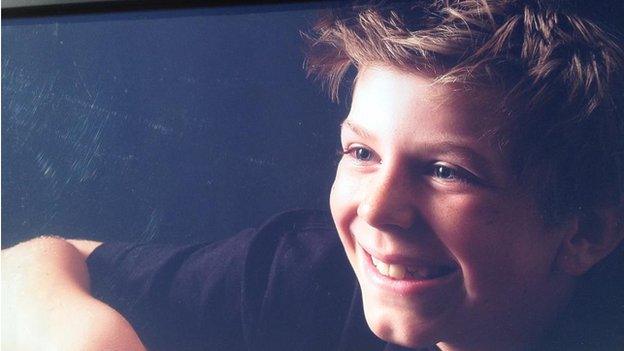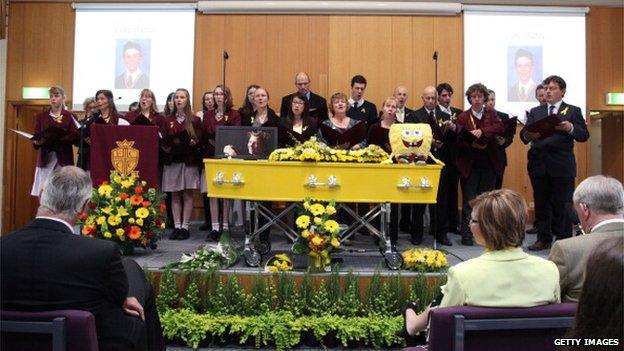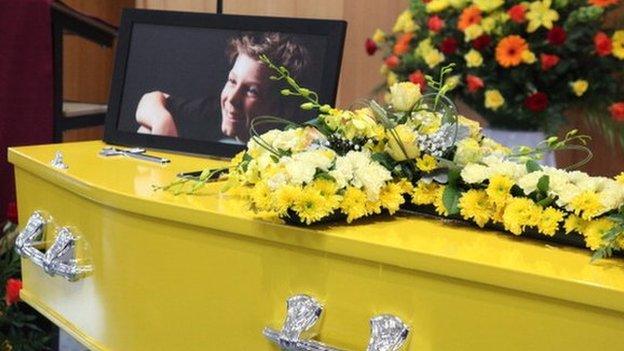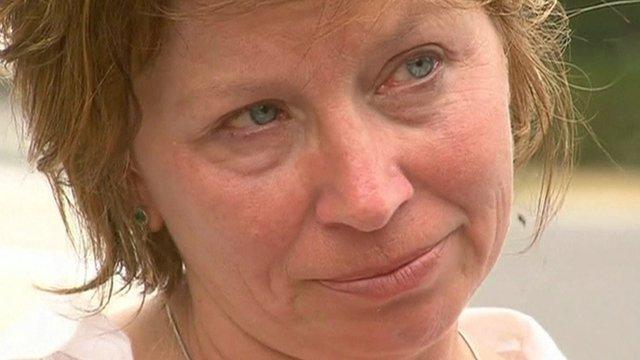Luke Batty: Victoria inquiry opens into killing by father
- Published

Luke's mother said the authorities had failed multiple times to protect him
A coroner's inquiry into the killing of an 11-year-old boy by his father has opened in Victoria, Australia.
Greg Anderson, 54, killed Luke Batty in front of shocked onlookers at a cricket oval in Tyabb, a Melbourne suburb.
They had been playing together during an access visit in February when Anderson suddenly struck his son with a cricket bat and stabbed him.
The coroner will examine what the authorities could have done differently to have prevented Luke's death.
Anderson was shot by police after threatening them with a knife when they tried to detain him. He died later in hospital.
The very public killing of the young boy shocked the nation in a way that many other acts of family violence committed every week in Australia have not.
His death and his mother's emergence as an articulate and powerful advocate for the rights of women and children living in violent relationships have given new force to efforts to prevent domestic violence both in Victoria and the rest of the country.
"When this is all over, I still won't get my little boy back," Rosie Batty, Anderson's estranged former partner, told the court.
"I never want anyone to be sitting where I'm sitting and lose their son like I lost mine."
'Systematic failings'
Ms Batty's powerful campaigning on the issue since has attracted a nomination for Australian of the Year. One leading academic recently said Ms Batty had put domestic violence at the top of the political agenda in a way that decades of research had not managed.
In Victoria, it is a key campaign issue for all political parties ahead of that state's 29 November election.

Luke's funeral service was held in Tyabb, a suburb of Melbourne, a week after his death in February
At Monday's inquiry, a large photograph of Luke was beside Ms Batty on the witness stand as she outlined the multiple interactions she had had in recent years with police, courts and child protection that ultimately failed to prevent Anderson from murdering their son.
Ms Batty did not speak directly to the media but had said ahead of the inquest that she wanted it to uncover the "systematic failings" which she believes occurred in the lead-up to Luke's death.
At times quietly breaking down, Ms Batty detailed how she had considered calling the police when she had seen Anderson earlier on the night he killed Luke, knowing he had a number of outstanding warrants for his arrest, mostly related to threats he had made against her.
She decided not to for Luke's sake. She had done so on two previous occasions but it had been "traumatic, stressful, unpredictable". She knew also the police had Anderson's address and could arrest him more "discreetly".
"I looked at Luke and thought this is going to be the third time I've tried to have this man arrested in front of Luke and his friends."
She said she felt relief in April 2013 when a magistrate had ordered that Anderson have no further contact with Luke but that order was later changed to allow him limited access at sports practice.
Federation of Community Legal Centres policy adviser Dr Chris Atmore said Ms Batty's evidence showed "how much we put onto abused women to basically wrangle the system by themselves".
"There were so many points in the system she articulated today where she was expected to blow the whistle for Greg, deal with her concerns for Luke, navigate the court system, interact with police and child protection.
"What came across in a striking way is how much we expect of people in Rosie's situation."
- Published20 October 2014

- Published14 February 2014
